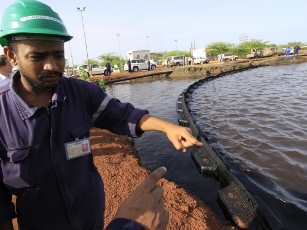Sudan plans to hike oil production, minister says
October 25, 2011 (KHARTOUM) – Sudan is planning to increase its oil production by the end of this year and double it by the end of 2016, a state official has revealed.

The oil-dependent Sudan hopes the fees it will receive from landlocked South Sudan in exchange for exporting its oil through the north’s pipelines could help to cover the deficit in its budget. However, the two sides are still deadlocked in negotiations over the amount South Sudan should pay.
In a report presented to Sudan’s parliament on Tuesday, deputy minister of oil, Ali Ahmed Osman said that his country is aiming to increase the rate of daily oil production to 180,000 barrels by the end of 2011.
The minister’s new estimate marks a rise from his own previous forecasts of reaching 170,000 barrels a day by 2012.
Osman also said that efforts were underway to bring the figure to 320,000 barrels by the end of 2016.
He further announced that the ministry’s plan also aims at covering local consumption, which he put at 5.8 metric tons, and exporting 457 metric tons of gasoline surplus as well as other oil products to regional and international markets.
Earlier this year, Sudan’s president Omer Al-Bashir instructed the ministry of oil to intensify oil production and ingratiate the country with new investors.
Osman said that his ministry was continuing the implementations of its programmes to attract new investors and increase oil reserve.
Sudan’s oil sector is dominated by Chinese-led companies but Khartoum’s efforts to diversify its oil investors recently seemed to have paid off.
However, analysts say that investing in Sudan’s oil sector is fraught with uncertainties in view of the fact that the most productive oilfields lie in the country’s southern state of South Kordofan which has been embroiled in a flaring conflict with no end in sight.
(ST)
